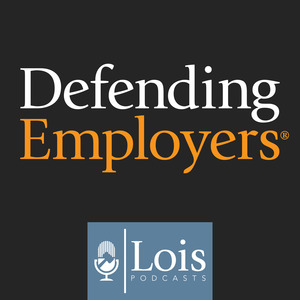Tashia Rasul is a partner at Lois LLC where she defends employers in New York workers’ compensation matters and leads the Construction Defense Practice team. She frequently visits construction and other work sites to develop defense strategies. Tashia routinely handles complex cases involving occupational injuries, pulmonary diseases and catastrophic injuries. Tashia also works on Longshore workers’ compensation claims.
In addition to her trial practice, Tashia leads the Firm’s Diversity Committee. Tashia is active in the National Alliance of Women in Workers’ Compensation, a think tank of engaged female thought leaders committed to discussing challenges and emerging trends in the Workers’ Compensation industry.
Before joining Lois LLC, Tashia was an in-house counsel for a national insurance company, where she handled personal injury protection (PIP) and “No-fault” cases. Tashia has also represented school boards, police departments and municipalities in cases involving claims against Public entities under New Jersey’s Title 59.
Tashia frequently provides on-site training for employers and carriers. She is the author of numerous articles on workers’ compensation, some of which can be found on her LinkedIn page.
Tashia Rasul has hosted 55 Episodes.
-
Episode 78: Virtual Hearings in New York
June 13th, 2018 | 19 mins 10 secs
defense attorneys, lois law firm, new jersey, new york, workers' compensation
New York is replacing in-person hearings with “Virtual Hearings” held via web conference. LOIS is holding two webinars led by attorneys who have handled virtual hearings in New York to discuss what this means for claims handling, claim defense, and costs. Attorneys Declan Gourley, Esq., Christian Sison, Esq., and Tashia Rasul, Esq., discuss the impact of virtual hearings in New York workers’ compensation claims.
-
Episode 77: Virtual Hearings in New York: Panel Discussion
May 31st, 2018 | 31 mins 1 sec
New York is replacing in-person hearings with “Virtual Hearings” held via web conference. LOIS Attorneys Declan Gourley, Esq., Christian Sison, Esq. , and Tashia Rasul, Esq., discuss the impact of virtual hearings in New York workers’ compensation claims, particularly in regards to what this means for claims handling, claim defense, and costs.
-
Episode 61: Evaluating Permanency Exposure in New York Workers' Compensation Claims
November 21st, 2017 | 29 mins 30 secs
atf, exposure, loss of wage earning capacity, lwec, new york workers' compensation, permanency, slu
Attorneys Tashia Rasul and Tim Kane lead a presentation and answer questions on evaluating exposure for Loss of Wage Earning Capacity awards in New York workers’ compensation claims.
-
Episode 22: Should I Pay Temporary Disability in New York?
July 22nd, 2016 | 28 mins 3 secs
indemnity benefits, lois llc, new york, temporary disability, workers’ compensation law
Three attorneys (Tashia Rasul, Rachel Aronov, and Greg Lois) discuss the statutory requirement to pay lost time wage compensation, when it applies, and and when not to pay.
-
Episode 20: The Going-and-Coming Defense in New York
June 17th, 2016 | 18 mins 56 secs
general defenses, new york, off premises, workers’ compensation law
Two trial attorneys (Tashia Rasul and Emily Flasz) discuss practical aspects of the handling cases where the injury to the employee occurs off premises.
-
Episode 17: Update to Special Report - Fund for Reopened Cases in New York
May 13th, 2016 | 15 mins 45 secs
lois llc, new york, reopened, special fund, workers' compensation
Question & answer session on the impact of the Board’s decision to appeal the recent appellate panel decision finding the closure of the Special Fund for Reopened Cases unconstitutional.
-
Episode 15: Special Report - The Fund for ReOpened Cases in New York
April 22nd, 2016 | 27 mins 23 secs
Attorneys Tashia Rasul, Declan Gourley, and Greg Lois from Lois LLC provide Q & A on impact of the decision in American Economy Insurance Company v. State of New York, decided April 14, 2016 which found that the retroactive application of New York WCL 25-a(1-a) to policies issued before October 1, 2013 was unconstitutional.
